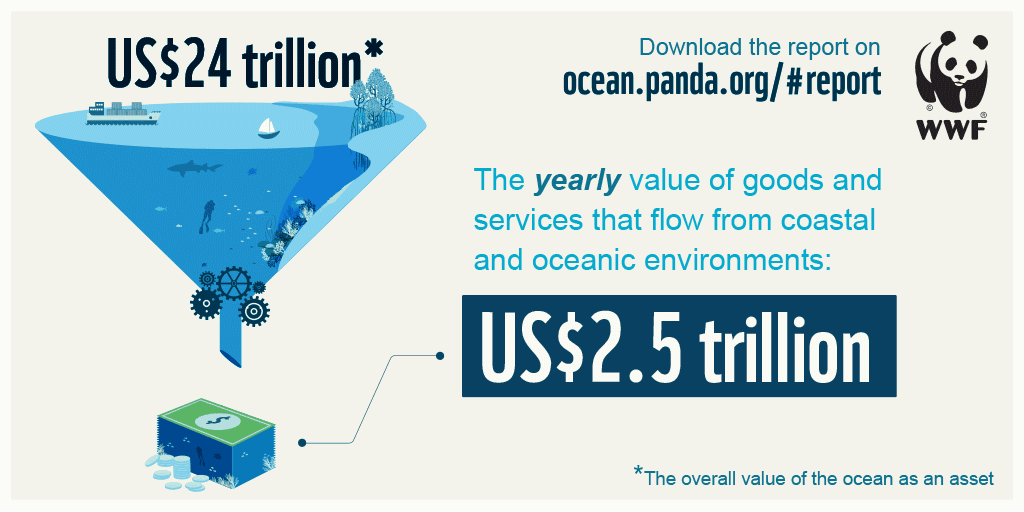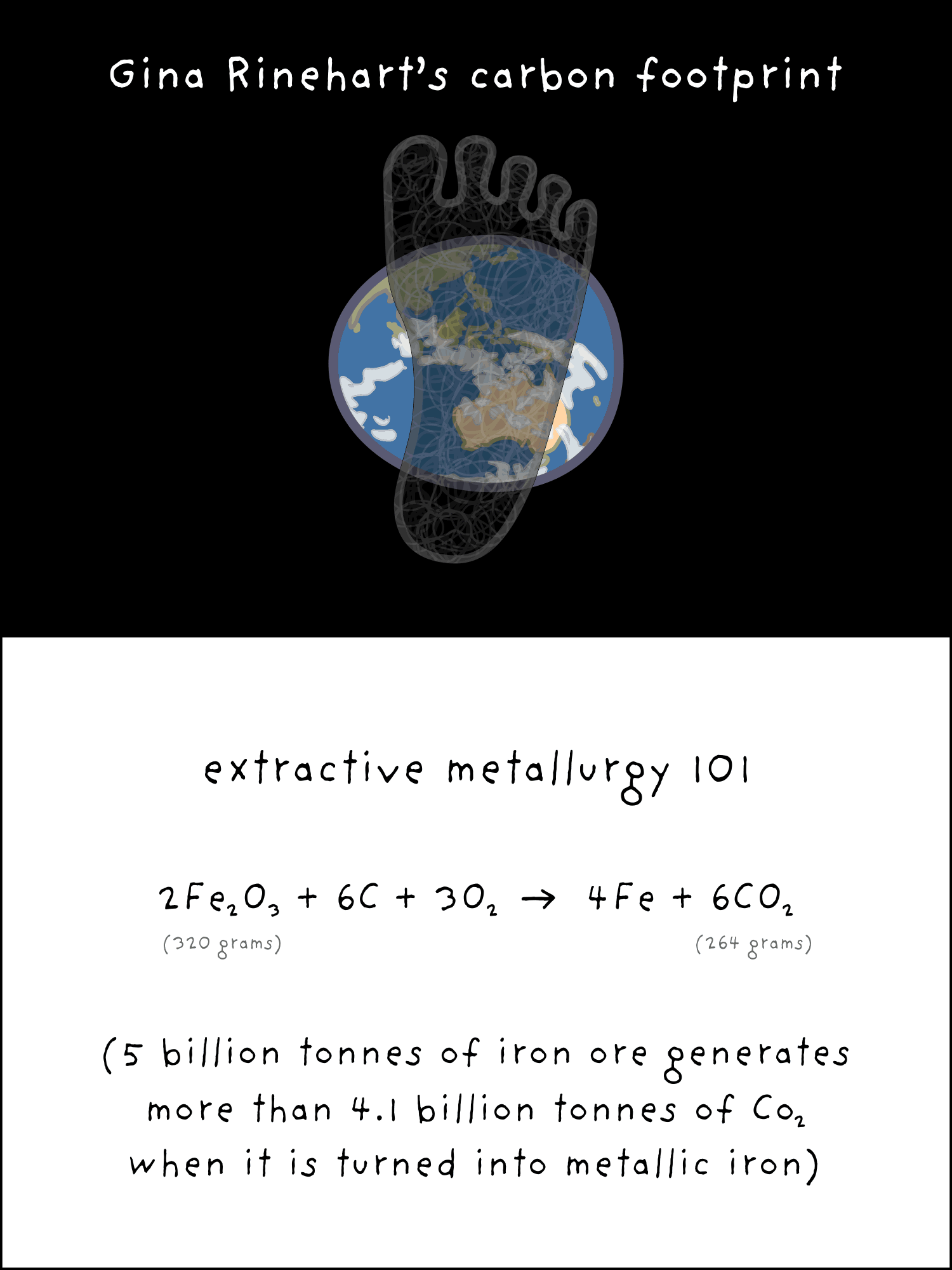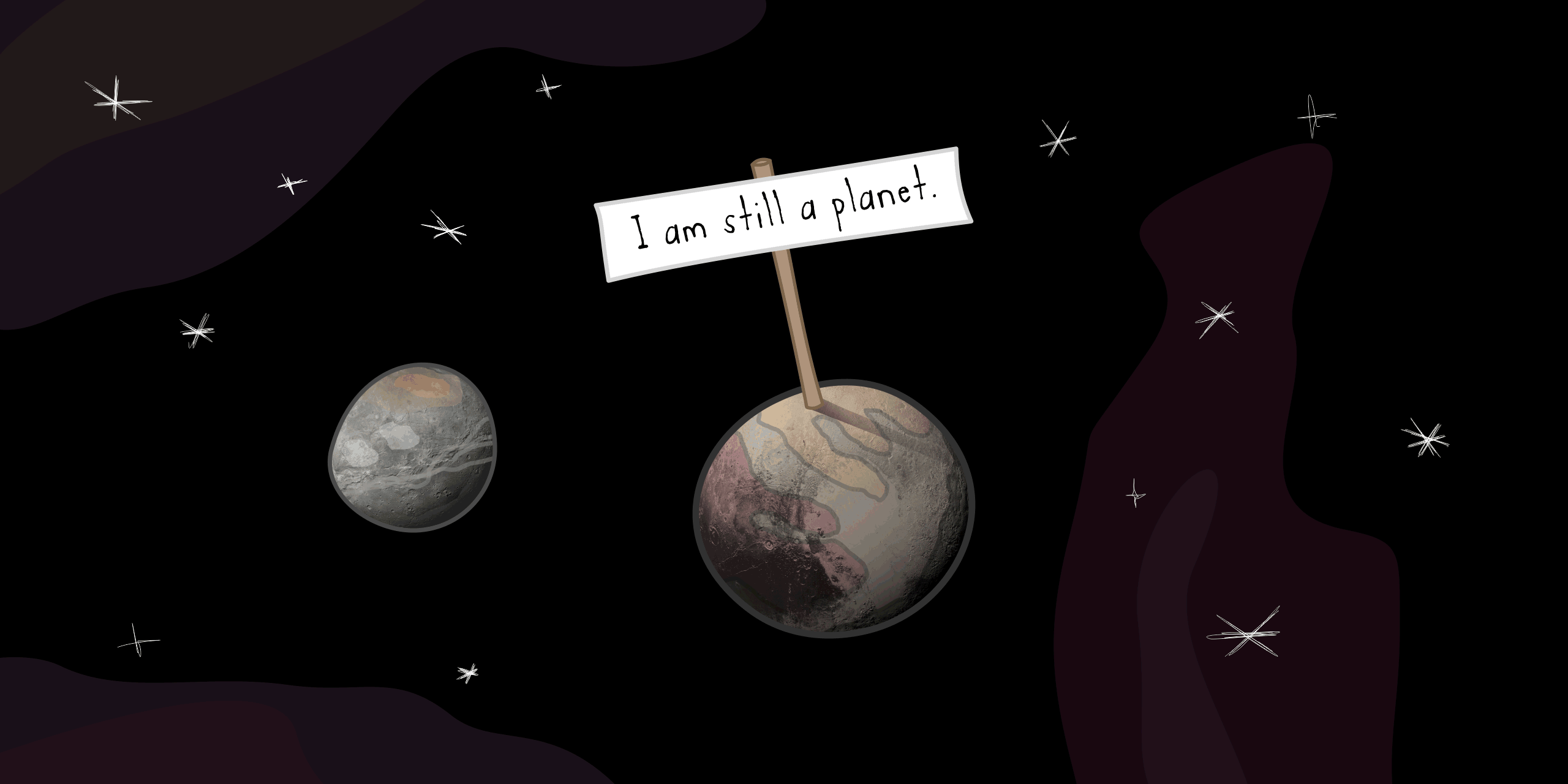So I came across this little illustration recently, put out by the WWF:
The ocean puts food on the table and underpins trillions of dollars of economic activity worldwide. It does all this freely. But not for long. The ocean is heading for a collapse.
Because the ocean belongs to everyone – and to no one – too many have taken too much. Centuries of overuse and neglect threaten to leave us with a vast blue desert. It is time to change the way we see the ocean – from a place where we take what we want and dump what we don’t, to a shared resource of immense value.
WWF is working to generate a new wave of support for sustainable seas. We will show leaders how a healthy ocean fosters economic development. We will celebrate and scale up the work of coastal and fishing communities to protect the resources they depend on. And we’ll give everyone the opportunity to speak out for our blue planet. Join us.
I think you’ll find that someone has drastically underestimated the value of the ocean + atmosphere here. It’s more like QUADRILLIONS of dollars. Why? Well, think about it, if we had to live off world, how much would it cost us? Eh? In a big space ship. Because that’s what some people are saying the alternative is. And without nature, that’s essentially what we’d have to do. We’d literally “be on our own”.
For example, how much are the first thousand lettuce leaves grown on Mars essentially going to cost to produce? Well, they are going to cost 1.5 BILLION dollars each lettuce leaf, aren’t they? So when you place the value at ‘only’ $24 trillion for all the fish in the sea (and more), I laugh. It ain’t anywhere near high enough. The information contained in the genetic material alone is priceless.




